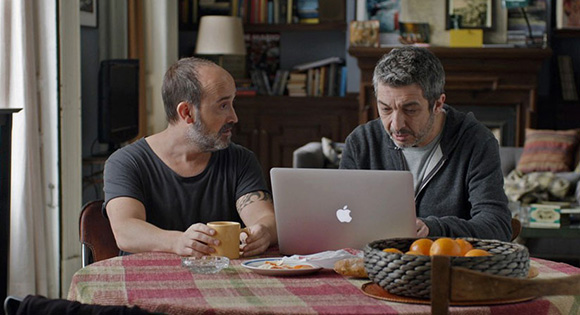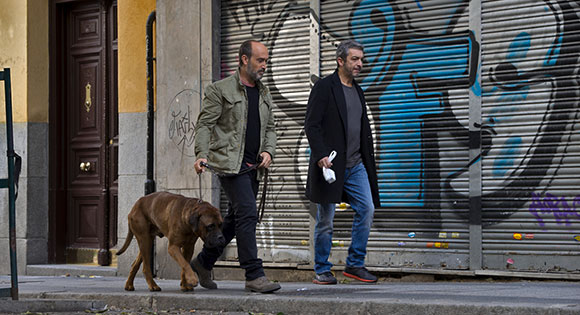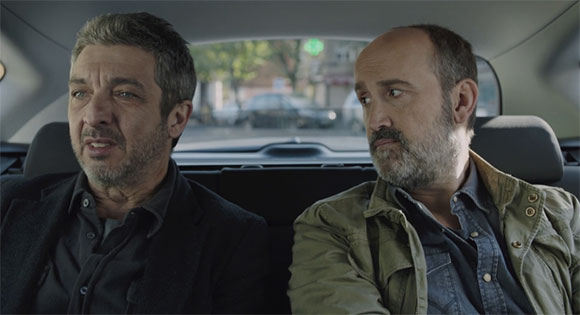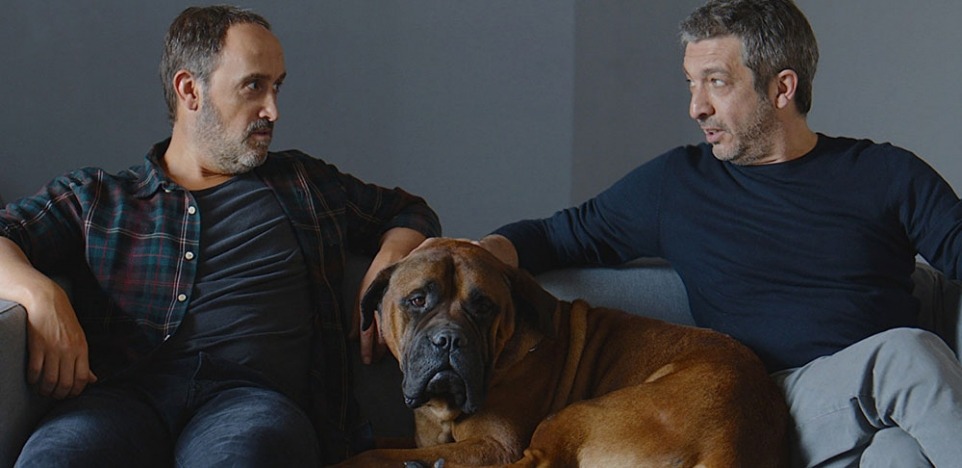"The great Korean Zen master Seung Sahn was famous for saying, 'Soon dead.' A wry wake-up call. Death is the elephant in the room. A truth we all know but agree not to talk about. We try to keep it at arm's length. We project our worst fears onto it, joke about it, attempt to manage it with euphemisms, side step it when possible, or avoid the conversation altogether."
— Frank Ostaseki in The Five Invitations: Discovering What Death Can Teach Us About Living Fully
Julian (Ricardo Darin) was born in Argentina but has found steady work in Spain as an actor in film and stage productions. When his long-time friend Tomas (Javier Camara) comes from Canada where he lives with wife and children, Julian is very pleased to see him. The visitor, who teaches at a college, can only spend four days with him. They make the most of their time together.
In conversations in bars and cafes, they reminisce about the past and try to come to terms with Julian's impending death. He has lung cancer which has spread to other parts of his body, and he has decided to stop chemotherapy and other treatments. Although Tomas might be tempted to try to change his mind, he knows better than to do so. Instead, he accompanies his friend as he goes about getting his affairs in order.

"Each person dies as best he can," Julian says, and he's determined to make all the key decisions himself. He visits a funeral parlor to decide what should happen to his body. He talks with his cousin Paula (Dolores Fonzi) and then makes an impulsive visit to Amsterdam to see his college-age son (Oriol Pla).
But far and away the most heart-affecting scenes are those in which Julian expresses his love and concern for his beloved bull mastiff named Truman. He even asks a veterinarian whether or not animals experience grief and what he can do to make his passing less traumatic for the dog. When he leaves Truman for an evening with a family that is considering adopting him, Julian reveals pain so deep that the moment becomes a preview of the other losses that will come with death.

Cesc Gay, the director and co- screenplay writer Tomas Aragay do a masterful job mapping the anticipatory grief surrounding Julian in his last days. They convey the graces he receives as he makes amends with a man he has offended and expresses his deep gratitude to his family and his special friend. They also catch the dark side of dying when Julian tells Tomas, "People don't know what to say to me. They smell death, and they get scared."

Every once in a while a film comes along that is insightful, subtle, sensitive, and pitch perfect in its coverage of a difficult topic. Brokeback Mountain was one. Truman is another. Everything about this film — acting, directing, writing, mood-setting — is just right. We come away from it realizing that we have had a spiritual encounter with dying, friendship, and above all, love. Or as Frank Ostaseski puts it in his profound book:
"Love is the very human quality that allows us to welcome everything, not just what we prefer most. Love is the motivation that enables us to move toward fear — not in order to conquer it, but in order to include it so that we might learn from it. In love, there is no separation. Caring for all things is a natural action of love. Nothing remains isolated from its care.
"Why is love the quality that allows us to welcome everything? When we view reality from the vantage point of our personalities — from a small separate self — we are constantly looking for what distinguishes us from one another. But when we live from the vantage point of boundless love, we begin to see all the points of connection that join us together. Love breeds love."
